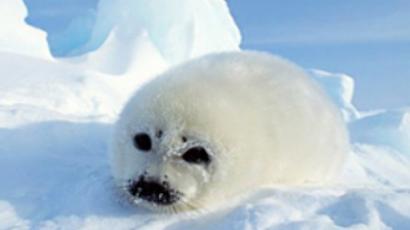Saving the saiga! Fight to save endangered antelope
The saiga antelope – one of the world's most endangered animals – is on the verge of extinction. With their horns sought as ingredients in Chinese traditional medicine, male antelopes are a target of poachers.
Back in 1977, they were thought to number more than 700,000. These days there are fewer than 18,000 saiga roaming the Kalmykian plains.
“The main reasons are poaching, illegal hunting and wolves, huge numbers of which migrated here from the Caucuses in 1998-2001,” said Yuri Arilov, the director of Centre for Wild Animals in the Kalmykia Republic, which is striving to protect the species. “Even now we still have more females than males.”
Founded in 2002, the centre is the only successful captive breeding area for saiga in the world. Aimed at increasing the saiga population, they began with just 23 calves taken in from the wild, raising and feeding them artificially. 17 of them survived and now there are 68.
Now the centre is able to export its success – 28 saiga were sent to China in 1997, to kick-start their once indigenous population. Animals have also been sent to the Russian regions of Rostov, Atrakhan and the Moscow city zoo.
Sprawled over 800 hectares of land, just four people live in the centre permanently, working around the clock to ward off wolves, carry out medical examinations and study saiga behavioral patterns.
“These electronic collars were donated by an American scientist, they allow us to track the saiga via satellite,” said Anatoly Bazirov, a technician. “In December, we plan to release two males into the wild but we’ll still be able to monitor their progress.”
Although the centre says it has seen a slight decline in poaching recently, it remains a huge concern. The male saiga horn is used in Chinese medicine and demand for it remains strong.
In spite of this, in Kalmykia, they’re determined to see the saiga once again dominate the Russian steppes – although they know it’s not just hard work that's required but a leap of faith.












